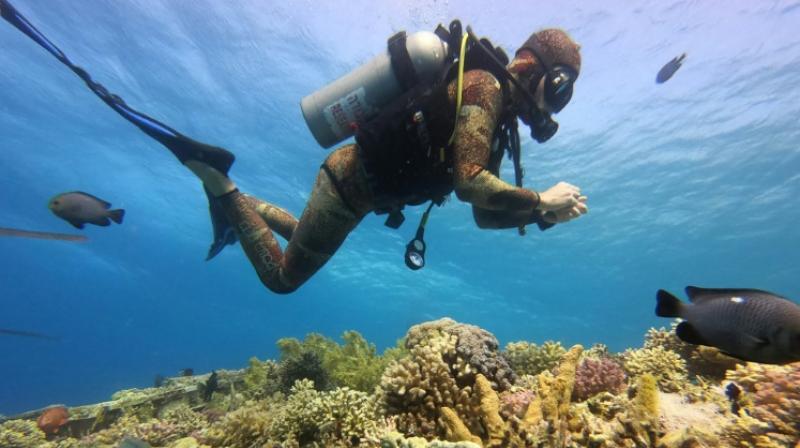Assaf Zuvloni: Israeli scientist who saved corals
He put on their diving equipment; immerse themselves with chisels and hammers to save corals.

Israeli: In the azure waters of the Red Sea, more than three meters deep, marine ecology researcher Assaf Zvuloni grabs a bright red coral attached to a metal pillar supporting a pier.
Maintenance work is planned on this oil jetty, which is several hundred meters in the sea. If we do not move the corals that have taken up residence here - with all the benefits that they produce on the underwater life. marine - their days are numbered.
So Assaf Zvuloni and his Israeli colleague Assaf Habary put on their diving equipment, to immerse themselves with chisels and hammers. "You have to save them," says Habary, of the Israeli Government's Wildlife Authority, "It's important to preserve the health of the ecosystem."
Under the water and under the eyes of AFP journalists, he places his chisel at the base of a coral and begins to type carefully. The metallic percussions break the marine silence.
The coral uses pier pillars near the seaside town of Eilat at the southern tip of Israel as an artificial reef, creating shimmering mosaics that sustain much of the surrounding marine ecosystem.
While the Israeli shores of the Red Sea are largely occupied by human activity and tourism, the edge of the pier is forbidden to boats and divers, and the coral thrives quietly. But, with the work planned on the installation, the Authority was given the task of moving it.
The red coral broke off under the hammer blows. Assaf Zvuloni arranges it carefully next to other corals in a pink plastic case. The two divers then join the surface, where Avi waits for them, pilot of the small motor boat which brought them.
The latter bends to grab the crate and places in a large blue container at the back of the boat that oscillates on the waves. The boat returns at full speed near the submarine observatory. This is where most of the corals are transferred, either on the reef or in a large aquarium.
A smaller portion goes to local educational facilities, and even to the zoo aquarium in Jerusalem, hundreds of miles further north. In a year, a thousand coral has been relocated, says Assaf Zvuloni, from the oil jetty or other nearby infrastructure, but also from waste deposited at the bottom of the sea.
All corals do not survive transplantation. And not everyone lets themselves go. The two scientists spend long minutes trying to dislodge a domed yellow coral from its base before resigning to return.
"It will take a crowbar," said Assaf Habary gravely. Each coral is home to animals and plants. "Corals are generally very important animals, they make their environment live, and so is more than the coral itself," says Zvuloni.
Global warming and rising water temperatures are causing corals to whitewash and die around the world. The World Heritage-listed Great Barrier Reef in Australia has experienced four severe bleaching events over the last 20 years. But the corals of the northern Red Sea are holding out for the moment, to the point of becoming a subject of study in Israel. "Stability these days is a privilege," says Assaf Zvuloni.

